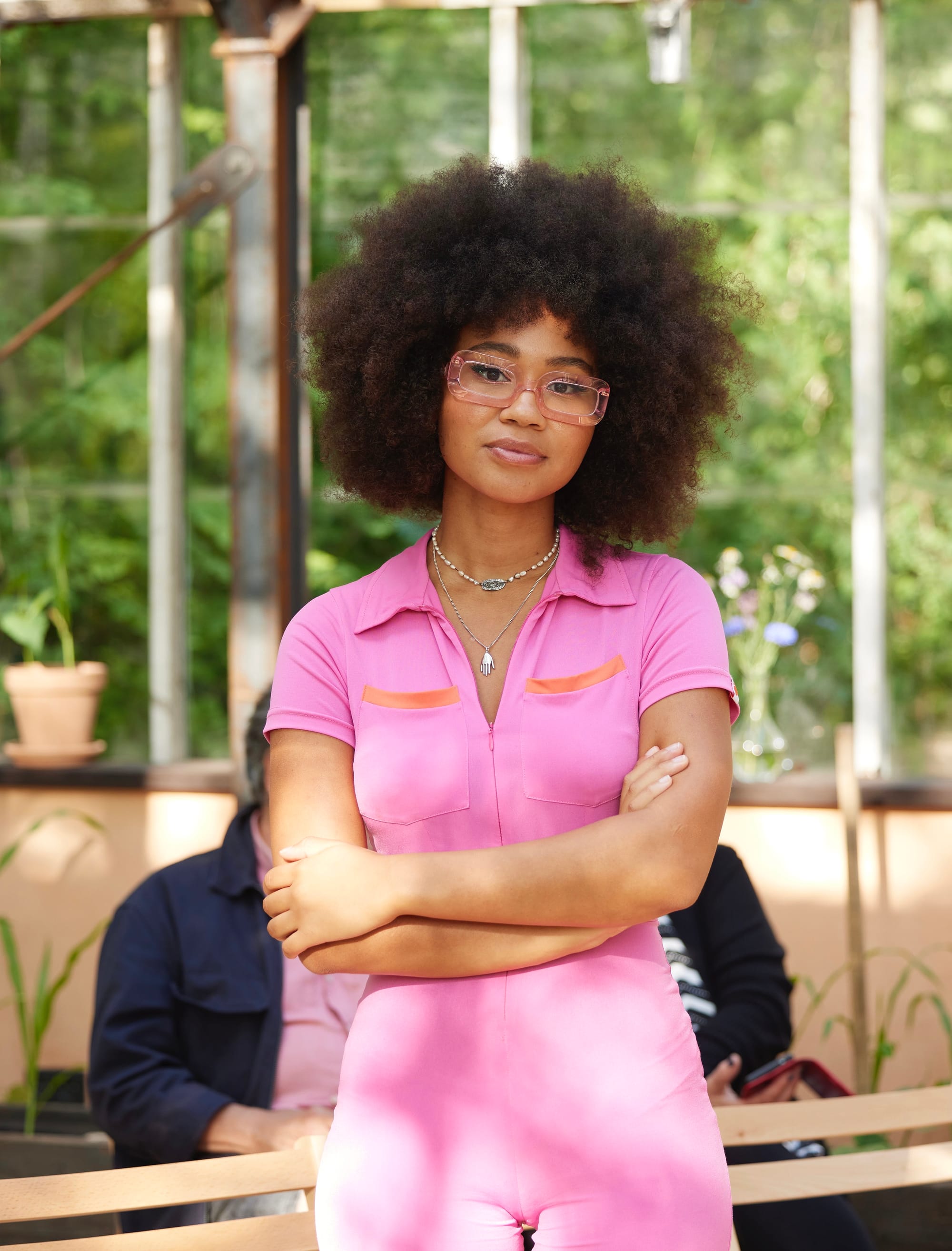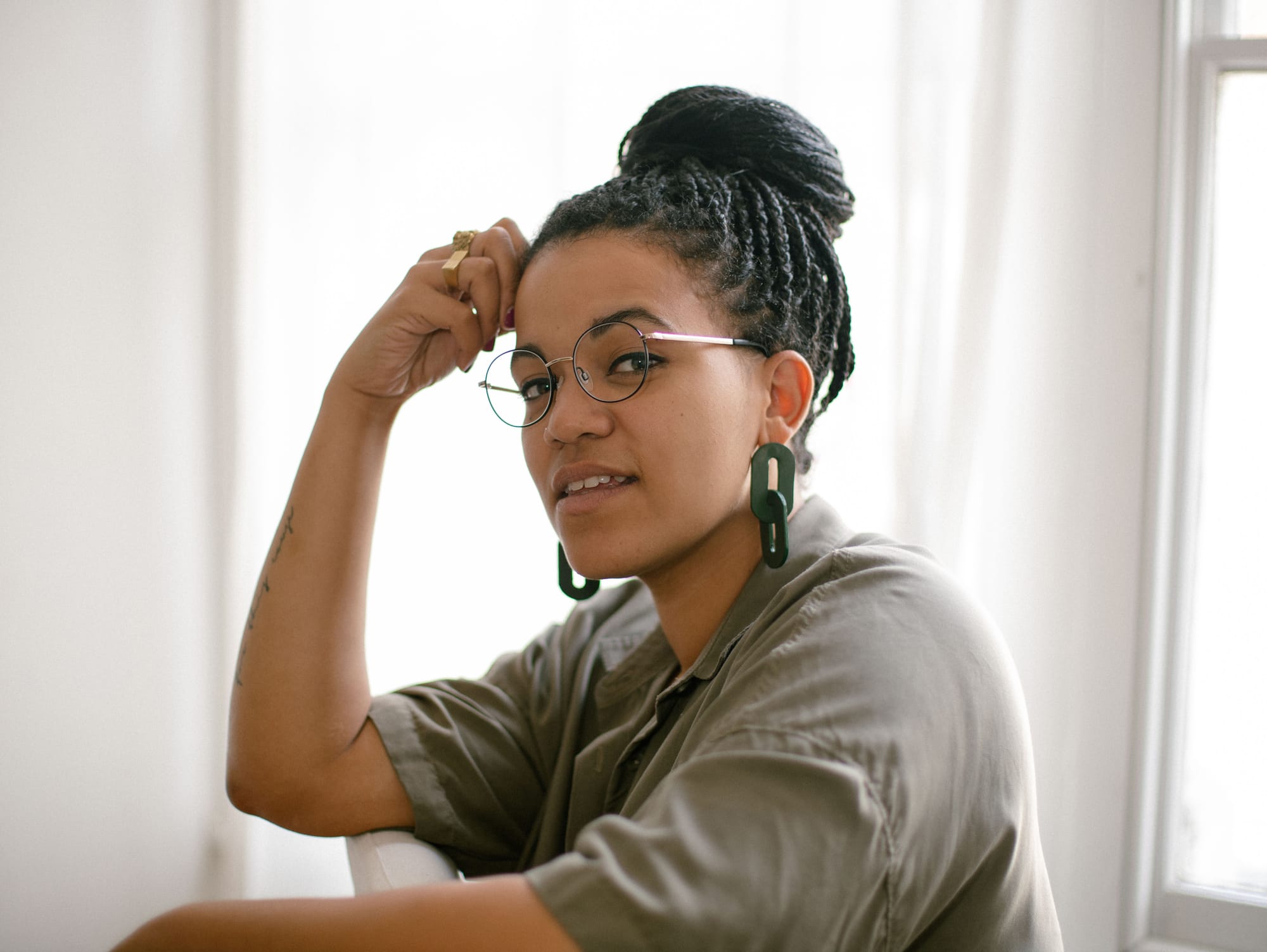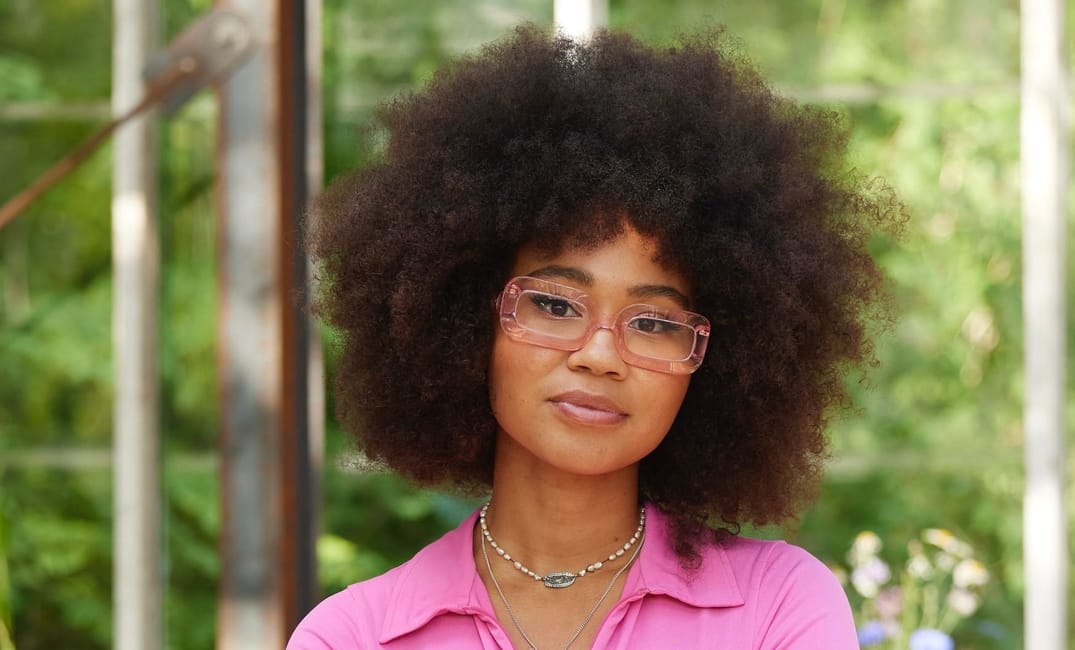We spoke to Mikaela Loach, co-founder of AWETHU school of organising about the importance of political education for young people, the role of community in tackling issues that shape our lives, and the transformative potential of collective organising.
Adele: What is Awethu?
Mikaela: Awethu is the Awethu School of Organising and we’re a transformative educational initiative and we are based on Black liberation and climate justice. Our aim is that 10 years from now, the climate movement not only looks very different but that the politics of it are centred on the liberation of the most marginalised and that’s why we’re focusing on Black liberation and its connections to climate justice. We aim to empower individuals and communities through political education and tools for grassroots organising because we believe that political education has the power to liberate and that through organising we can create the world that we all deserve.
Adele: What was the inspiration for starting Awethu?
Mikaela: For myself and Jess, the inspiration came from being in different organising spaces over the last decade and often especially in climate spaces being the only Black person in the room in a lot of these more mainstream climate groups. Then having many conversations with people in my community and hearing their hesitations of getting involved or often some people feeling there aren’t many resources that are about climate justice in particular in the UK that are directed for our community. Black people and our communities have the most to gain and the most to lose from the way that the climate crisis is tackled and so it’s so important that our community is centred in climate justice and are given the resources and tools which are needed to tackle the climate crisis as organisers as Black People have been at the forefront of movements for liberation for generations. It was also inspired by the work of Ella Baker in SNCC (Student Nonviolent Coordinating Committee), Assata Shakur’s work and the Black Panther’s Saturday schools, as well as many other organisations across the world who are using political education as a tool to organise communities.
Adele: Why is it important that young people learn how to organise in their communities?
Mikaela: I think it’s so important because an organised community can achieve so much - so for example when workers are organised together their boss is almost unable to exploit them in the same way, whereas when workers aren’t organised they are much easier to be exploited because they’re separated from each other and their power is decreased. Our power increases exponentially when we are organised and when we work together in community. I think there’s this thing in our generation - from the neoliberalism of Margaret Thatcher and the individualism by celebrity culture and social media in particular - a lot of young people now see themselves more as individuals than as part of a community and some young people think that the way we take action is just through sharing things and through wearing our politics on badges or tshirts.
But actually, if we organise together we can achieve so much more. I think it’s really important because we’ve been given such a bad hand in so many ways through neoliberal governments that have come before and because of the climate crisis so its more urgent than ever that we have organised communities that can really take the power back into the hands of the people.

Adele: For many people growing up in the digital age, political education has come from infographics and reading the ‘right books’. What does political education look like in practice?
Mikaela: So political education that we're talking about at Awethu and how I view political education is it's something that transforms you as a person and therefore it transforms the way that you act and the posture that you take in this world. And it's not just something that is held in our heads it's something that we use to transform the world around us. I find it really strange how there's been this nature of people, either like wanting to be seen reading the right books, either walking around or holding the right quote, unquote, books but then not seeing them practise what those books are telling them to do - so not seeing people actually organising in their communities and building community power that will create the worlds that these books are either asking us to create, or that will tackle these the issues that these books are asking us to critique.
I think that we have to have an active posture in the face of the crises that are surrounding us, and at Awethu we aim to work with young people who are already have a feeling that something's not right, but perhaps just don't know how to build power, and how to like really move things beyond just talking about them. I think that going back to how past movements have organised communities is a really useful way in doing that, especially in the age of where we can get distracted by like counts or view counts or how much something has been shared, when often that doesn't actually mean that power has been shifted.
Adele: What advice would you give to young activists and aspiring organisers who wish to make a difference in their communities?
Mikaela: The advice I would give is join a [organising] group immediately. Being part of a group especially a group that has been organising for a while already, you will learn so much by being in community with other people and by building relationships with other people who've been doing this work for so much longer than you have. My experience in climate organising was that the groups that I joined, I would really try and listen so much more than I spoke, at the start in particular. Another key thing is don't just join the group, take on an action point and say to yourself that you’re going to take one action point - every single meeting even if it's something really small like bringing the snacks for the meetings. Take on an action point and make it a habit. Take time to realise that they're the people who've been doing this work for so much longer than us.
I think that there can sometimes be this posture when we've just found out about an issue or when we've just started acting around it, we can feel like "What's everyone else been doing for so long? Like I can't believe this and the way I'm doing it must be the only way to do it." But actually there have been a lot of people who've been doing this work before us and that we can learn from and I think this posture of humility is something I've found to be really useful as well. That's not to say that someone being older than you means that they definitely know more than you, that's definitely not the case, but I think that we can still recognise there's a lot that we can learn and be challenged on as well.

Adele: What will the school of organising equip young people with?
Mikaela: It will equip young people with both the knowledge and the practical tools to create transformation in their communities so that means practical tools and sessions on how do we build a strategic campaign, how do we map power, how do we organise our communities, how do we do outreach, how do we have a media strategy, what is campaigning versus mobilising, things on support around how and if we fund our campaigns and our groups. Also understanding the historic nature of these issues so we can better understand how we can undo the issues existing in our world. By the end of it, we hope the young people that attend will also build relationships with each other. We also are very much going with a framework of education that doesn’t see the people joingin our course as empty vessels waiting to be filled knowledge - we recognise that every single participant in our cohort will have come to this course with so much knowledge and so much to bring and that there will be so much cross-pollination of people connecting with each other and learning from each other as well and I’m excited for how much I’ll be learning and not just teaching as such.
Who do you want to apply to Awethu?
Mikaela: Our first cohort is open to 18-25 Black people - so that’s anyone of African or Caribbean descent. What we really want is people who are really passionate about changing something in their community or in the world at large but who don’t have tons of experience and maybe have felt alienated from organising spaces, and who really just want to create transformation. Please don’t feel like you are too nervous to apply! In our application form we just want to get to know you and we’re not going to be assessing the quality of your writing, we don’t care where you went to school or what qualifications you have - we just care that you have passion for transforming your community and I’m really excited to meet all of you.
Apply to be part of the first cohort of organisers here
Learn more about Awethu
Thanks for reading our article! We know young people’s opinions matter and really appreciate everyone who reads us.
Give us a follow on Instagram and TikTok to stay up to date with what young people think.

